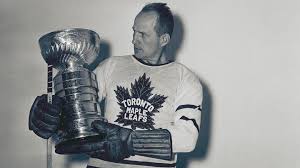Hap Day is widely regarded as one of the best coaches in National Hockey League (NHL) history, and his reputation is inextricably linked to that of the Toronto Maple Leafs. Day, best known for his tenure as the Maple Leafs’ head coach from 1927 to 1940 (after a player career that began in 1924), helped define the organization throughout its formative years. His 14-year time behind the bench was characterized by ingenuity, resilience, and success, laying the groundwork for the Leafs’ illustrious history.
Clarence Henry “Hap” Day, born in Owen Sound, Ontario in 1901, began his career as a player. He captained the Toronto St. Patricks before they were renamed the Maple Leafs in 1927. He was known for his acumen on the ice as well as his steady, disciplined manner. Day’s lasting reputation came from his ability to lead others, both as captain and then as coach. After retiring from skating in 1937, Day became a full-time coach, and it was there that his influence completely revolutionized the squad.
During his career as head coach, Hap Day won 259 regular-season games, a record that served as a bar for future Leafs coaches for many years. More importantly, under his leadership, the Maple Leafs became one of the most dominant teams of their time. Day guided the organization to five Stanley Cup Finals visits, including the final victory in 1942, when Toronto made one of sports history’s most remarkable comebacks. Faced with a 3-0 disadvantage against the Detroit Red Wings in the Stanley Cup Final, Day’s Leafs became the first team in NHL history to rally and win the series 4-3, a performance that is still legendary today.
Day was well-known for his smart hockey mind, discipline, and ability to maximize his players’ performance. He emphasized discipline, accountability, and team-first hockey, and his teams were noted for their tenacity and work ethic. Day had a flair for combining seasoned veterans and rising youthful talent, and he helped nurture players who would go on to become Maple Leafs legends. His calm temperament and tactical understanding distinguished him in an era when the game was fast growing.
Hap Day’s effect on the Maple Leafs continued beyond his playing career, as he served as deputy general manager and subsequently vice president of the organization. His influence helped shape the Leafs teams that dominated the NHL in the 1940s and 1950s.

